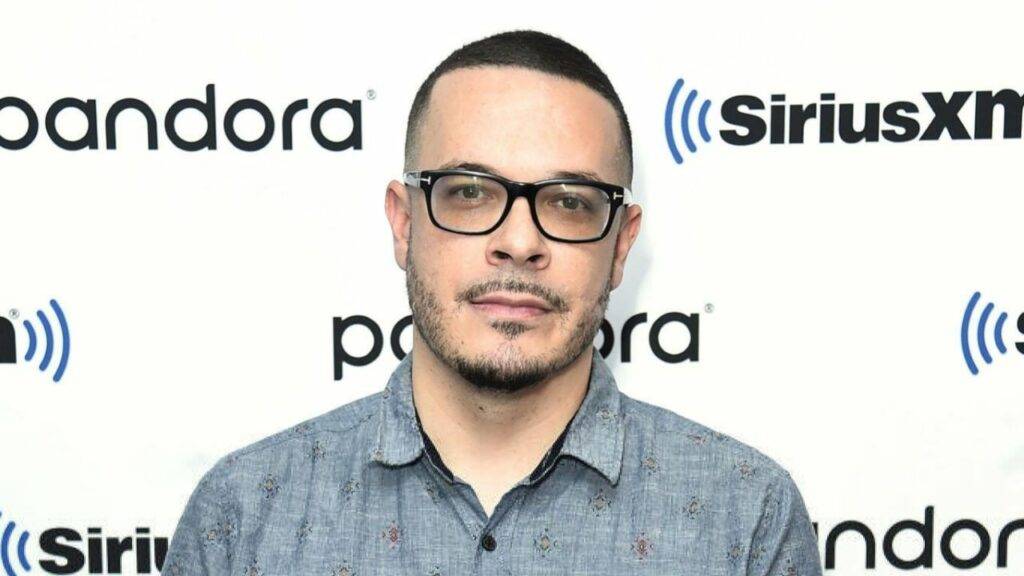Shaun King is a prominent American writer and activist known for his fervent advocacy for social justice causes, notably the Black Lives Matter movement. However, his identity and background have often been subject to scrutiny and controversy, particularly concerning his race and religion.

In this article, we delve into the life of Shaun King, his religious beliefs, and the ongoing debate surrounding his racial identity.
Who Is Shaun King?
Born Jeffery Shaun King, he emerged as a vocal figure in the realm of social activism, utilizing platforms like social media to champion causes related to racial equality, police brutality, and systemic injustice.
King’s upbringing in Kentucky and his educational journey, culminating in an undergraduate degree from Morehouse College in Atlanta, Georgia, have deeply influenced his perspectives and activism.
Early Life and Family
Raised by his mother, Naomi Kay (Fleming) King, as a single parent, Shaun King’s childhood was marked by the absence of his biological father. While his birth certificate identifies a white man named Jeffery Wayne King as his father, Shaun has maintained that his biological father is a light-skinned black man, as relayed to him by his mother.
Shaun King’s rise to prominence stems from his unwavering commitment to social justice causes. He has been a vocal advocate for marginalized communities, employing various mediums to raise awareness and mobilize support. His involvement in the Black Lives Matter movement, in particular, has garnered widespread attention and praise from supporters.
Shaun King Religion
In 2024, Shaun King publicly announced his conversion to Islam, along with his family, marking a significant milestone in his personal and spiritual journey. Embracing Islam on the first day of Ramadan, King’s decision to adopt a new faith has sparked discussions about the intersection of religion and activism in his life.
King’s decision to embrace Islam reflects his ongoing quest for meaning and purpose, aligning with the principles of social justice and compassion that define his activism. The significance of Ramadan, a month of reflection and spiritual renewal in the Islamic faith, amplifies the depth of King’s commitment to his newfound religious identity.
Impact on Advocacy Work
While Shaun King’s religious conversion has undoubtedly added a layer of complexity to his public persona, it has not detracted from his advocacy efforts. If anything, his embrace of Islam serves as a testament to the universality of justice and equality, transcending cultural and religious boundaries.
Is Shaun King White?
The question of Shaun King’s racial identity has been a subject of intense debate and speculation in both mainstream media and online discourse. Despite being identified as white on his birth certificate, King’s self-identification as biracial has sparked scrutiny and skepticism from critics.
In a 2015 statement, Shaun King reiterated his belief that he is biracial, citing his mother’s affirmation of his biological father’s racial background. However, the absence of concrete evidence to substantiate his claims has fueled skepticism among those questioning the authenticity of his racial identity.
Impact on Activism
The controversy surrounding Shaun King’s racial identity has not gone unnoticed within activist circles. While supporters emphasize the importance of focusing on his contributions to social justice causes, detractors argue that inconsistencies in his narrative undermine his credibility as a spokesperson for marginalized communities.
Shaun King’s journey as a writer, activist, and now, a practicing Muslim, reflects the complexities of identity and the intersectionality of faith and activism. Despite facing scrutiny and controversy, King remains steadfast in his commitment to advocating for social justice and challenging systemic oppression.
As the discourse surrounding his racial identity continues, one thing remains clear: Shaun King’s impact on the fight for equality transcends the boundaries of race, religion, and personal identity.


